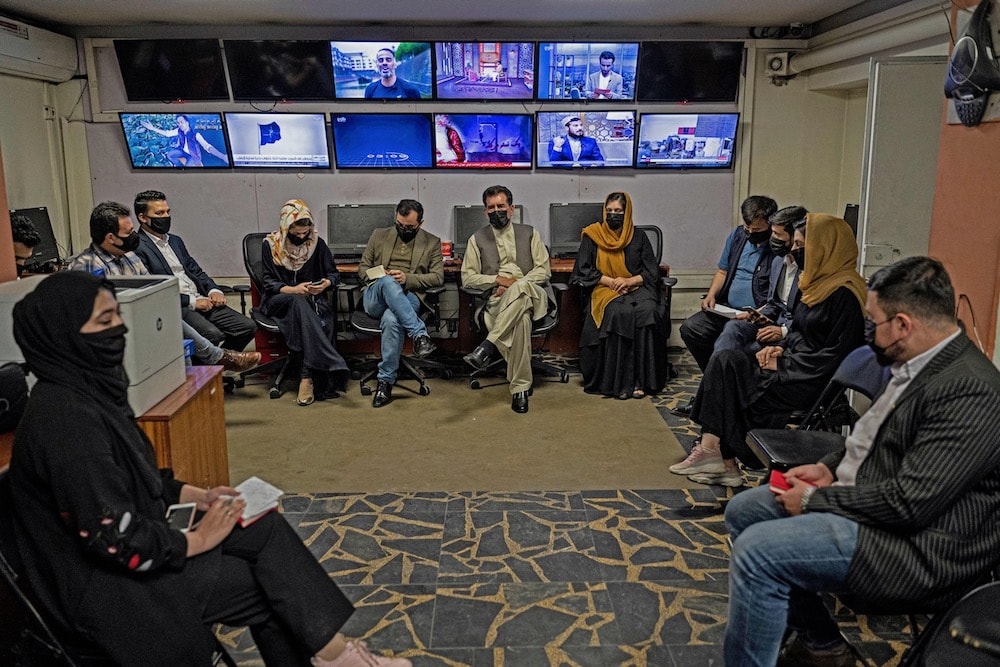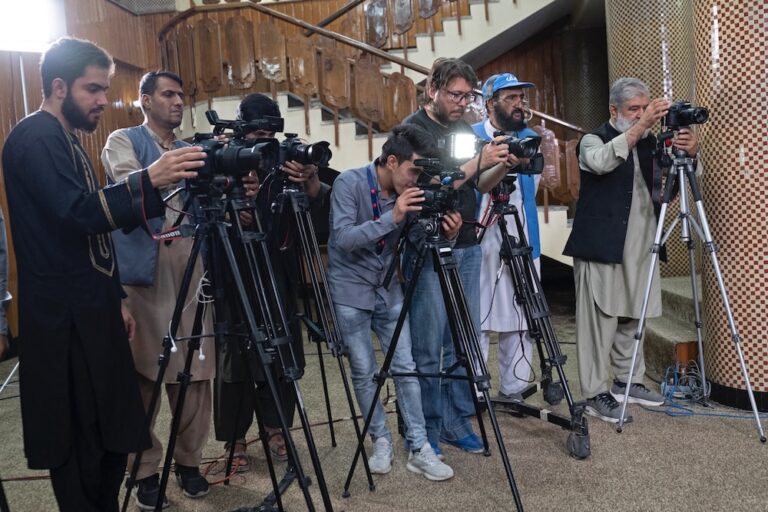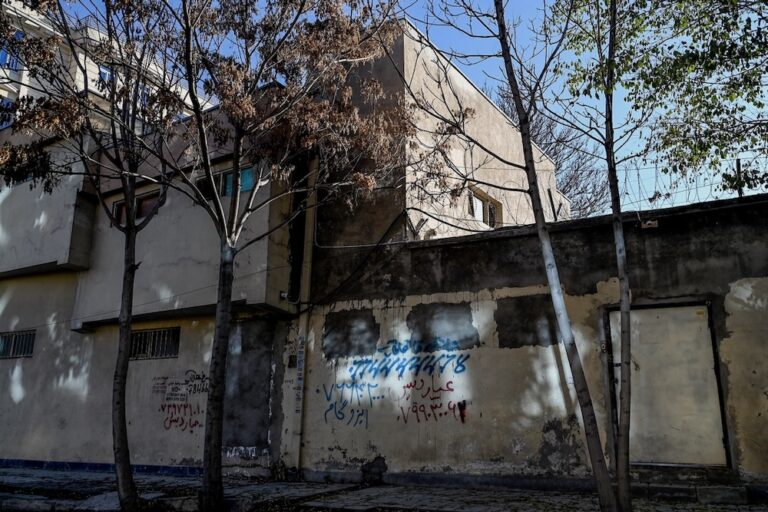CPJ has published its recommendations on upholding press freedom in Afghanistan a year after the Taliban regained control of the country.
This statement was originally published on cpj.org on 11 August 2022.
The Committee to Protect Journalists makes the following recommendations to facilitate media freedom and ensure the safety of journalists in Afghanistan:
To the Taliban, the de facto authorities in Afghanistan
1. Respect and guarantee the ability of all journalists and media workers to report and produce news freely and independently, without fear of reprisal, in keeping with the Taliban’s public commitments of August 2021.
- End arbitrary arrest, detention, enforced disappearance, beatings, and torture of journalists and media support workers. Release all arbitrarily detained journalists.
- Restore the ability of women journalists to work freely, without coercion or discrimination; eliminate the requirement for face coverings during newscasts.
- Allow journalists, domestic and foreign, to freely enter and leave the country, and to travel and work within Afghanistan without interference.
2. End the involvement of the General Directorate of Intelligence and the Ministry for the Promotion of Virtue and Prevention of Vice in developing or enforcing media policy, or intervening in media operations and interfering with the work of journalists.
3. Allow civil institutions, including the Ministry of Information and Culture and the Media Violation Commission, to exercise their authority over the media and thoroughly and impartially investigate complaints of attacks on the press, including arbitrary detentions and acts of violence targeting journalists and media workers.
4. Ensure access to effective remedies and due process for journalists who have been targeted for their work and penalize members of the Taliban engaging in such violations.
5. Continue interaction and engage constructively with the United Nations Assistance Mission in Afghanistan (UNAMA) Human Rights Unit to address the situation of journalists in the country.
6. Continue to engage with and facilitate country visits by the U.N. Special Rapporteur on the Situation of Human Rights in Afghanistan, including the ability to meet privately with journalists and news executives.
*CPJ directs these recommendations to the Taliban as the de facto authority of Afghanistan and thereby the duty-bearers of human rights in the country.
2021: CPJ and the crisis in Afghanistan
To all governments
1. Accept Afghan journalists who are seeking emergency relocation and enact emergency visa programs to create a pathway specifically for at-risk journalists.
2. Streamline resettlement processes and support journalists in exile to continue working as journalists, while collaborating with appropriate agencies to extend humanitarian and technical assistance to journalists who remain in Afghanistan.
3. Use targeted sanctions programs to hold Taliban officials and others accountable for human rights violations against journalists and media workers.
4. Continue to condemn press freedom violations and make clear in any diplomatic engagement with the de facto authorities that the free operation of an independent media is essential for Afghanistan’s future.
5. Use political and diplomatic influence to press de facto Taliban authorities to lift restrictions on the independent media and ensure that journalists are not subjected to arbitrary detention, torture, beatings, and threats.
6. Governments that have adopted “feminist foreign policies,” such as Canada, France, Germany, and Sweden, as well as those that are committed to women’s rights, should develop and implement a strategy for concerted advocacy against restrictions targeting women journalists and media workers in their ongoing engagement with the de facto authorities.
7. Support the continuation of the human rights mandate of U.N. experts, including the United Nations Assistance Mission in Afghanistan (UNAMA), and ensure adequate resources are available for human rights monitoring, documentation and accountability efforts, including on issues of press freedom.
To international organizations
1. The U.N. Security Council should reimpose the travel ban originating from a 1988 U.N. sanctions regime on all Taliban leadership involved in human rights violations, including specifically those responsible for attacks on the press.
2. U.N. special rapporteurs should meet with journalists in Afghanistan and those living in exile and include their experiences in any reporting and engagement with the de facto authorities.
3. The International Criminal Court (ICC) should pursue investigations into crimes against journalists, as part of its relaunch of investigations into crimes committed by the Taliban and the Islamic State.
4. The Media Freedom Coalition, a partnership of 52 countries working together to advocate for media freedom and safety of journalists, should suspend Afghanistan’s membership in the body and seek meaningful, concrete steps to improve press freedom.



